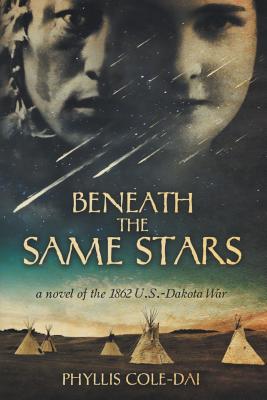
In 1862, after a delay of annual treaty payments and the Indian Affairs official’s refusal to distribute food to the starving Dakota, war breaks out in Southern Minnesota. Sarah Wakefield, wife of the doctor on the reservation, is captured along with her two young children. The warrior Caske, who Sarah had previously befriended, saves them, and their fate is entwined with his.
This is a very well researched piece of historical fiction. Many of the characters are based on historical figures, and the story follows the actual events of the US-Dakota war closely. I knew when I started this book how it would most likely end, which is the issue anyone faces when writing historical fiction. Despite that, I was fully engrossed in the story. The book explains enough so people who don’t know the history will still be able to enjoy it. I don’t think the narrative is bogged down at all.
The plot moves briskly, and the characters are engaging. It shows the events leading up the war—the government delaying payments, breaking their word, and rampant corruption of officials using their position to line their own pockets with no thought to the tribal people they were supposed to serve. If the Indian agent had opened up the food stores and distribute them when demanded it could have saved a lot of bloodshed.
The developing relationship between Wakefield and Caske brings both joy and sorrow. It is easy for me, as a modern woman in the 20th century, to wonder why Wakefield is so desperate to stay in an abusive marriage. But I have to remind myself divorce was difficult and supporting two children would have been a hardship. Even today, it is still a feat.
For what it is, this is a good novel. But that’s part of its weakness. This is the story of Sarah Wakefield. While her perspective may be sympathetic to the Dakota, its still a white lens. We only glimpse Dakota culture through Wakefield’s eyes, who doesn’t fully understand what is going around her.
The story of Sarah Wakefield if a story that should be told. But the story I also want to see is the story of the Dakota. We only glimpse their hardships after the war, when all Dakota—those involved in the war, those who tried to make peace, those opposed—were swept up in the retaliation. While Sarah may have suffered her experiences after the war pale in comparison to the internment at Fort Snelling and forced removal of the Dakota from Minnesota. She was compensated for her property lost in the war (or more accurately, her husband) and didn’t face years of starvation.
Ultimately, I want to see the story of the Dakota War told in Dakota voices. For such a historical event that had so many far reaching consequences, there is little fiction that delves into this part of the past.
